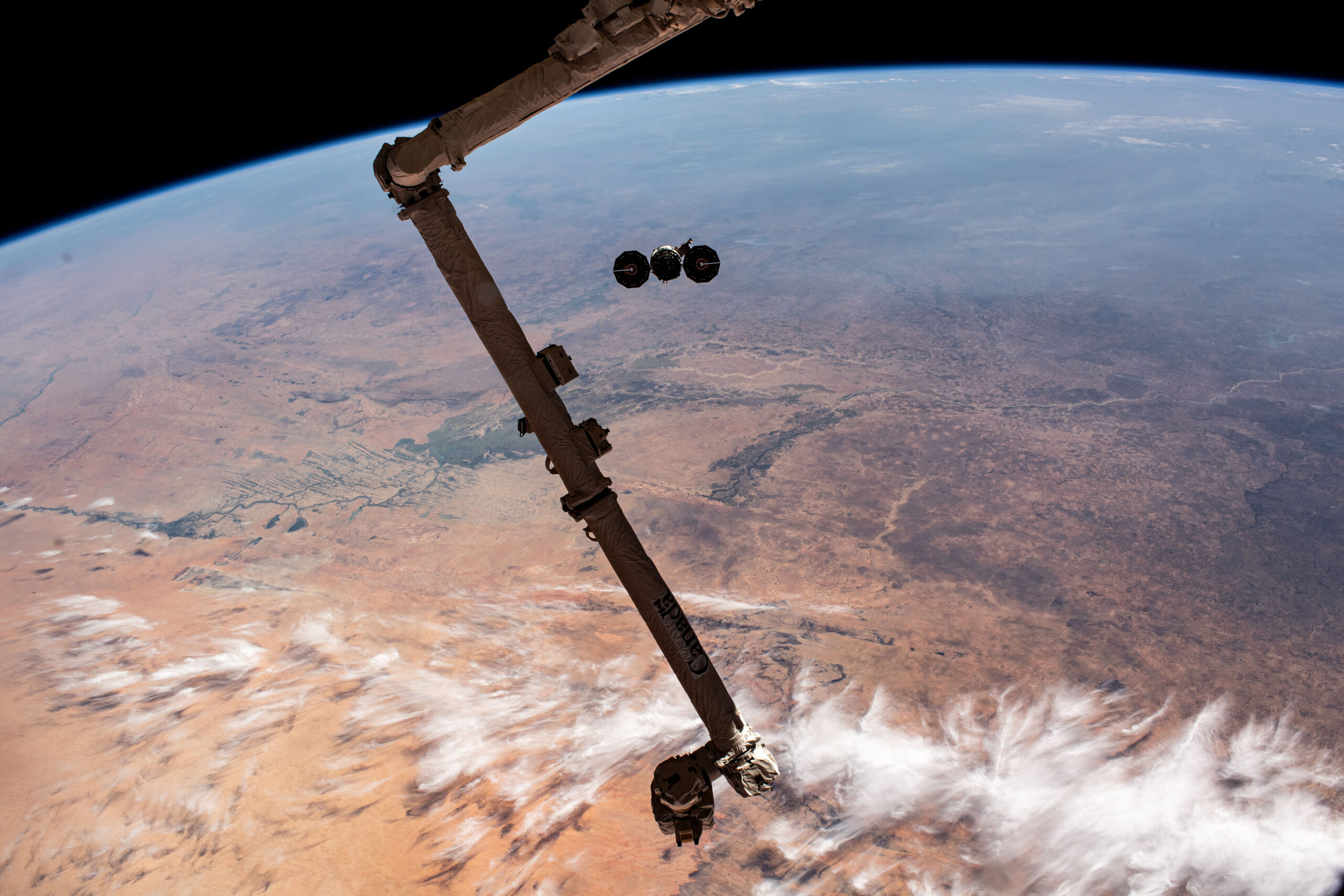
After a delay-plagued first month of the year, SpaceX is only hours away from its seventh Falcon 9 launch in January, as a record-setting booster prepares to fly tonight from California. Seasoned B1063—a grizzled West Coast veteran, flying a record-breaking 15th time from Vandenberg Space Force Base and the 16th mission of its career—is targeting a raft of T-0 points extending from 4:35 p.m. PST through 8:35 p.m. PST, with backup opportunities available from 4:14 p.m. PST Wednesday.
在经历了今年第一个月的延误之后,距离 1 月份第七次猎鹰 9 号发射只有几个小时了,一枚创纪录的助推器准备今晚从加利福尼亚州起飞。经验丰富的 B1063 是一位头发花白的西海岸老兵,破纪录地第 15 次从范登堡太空部队基地起飞,也是其职业生涯中的第 16 次任务,目标是从下午 4 点 35 分到下午 4 点 35 分开始一系列 T-0 点。太平洋标准时间 (太平洋标准时间) 至晚上 8:35 PST,从下午 4:14 开始提供备份机会。太平洋标准时间周三。
For tonight’s flight, B1061 is laden with 22 Starlink internet communications satellites, totaling 38,800 pounds (17,600 kilograms), destined for insertion into low-Earth orbit. It will bring the total number of these flat-packed satellites launched so far in 2024 to more than a hundred aboard five Falcon 9 missions.
在今晚的飞行中,B1061 装载着 22 颗星链互联网通信卫星,总重 38,800 磅(17,600 公斤),注定要进入近地轨道。到 2024 年为止,五次猎鹰 9 号任务中发射的扁平封装卫星总数将达到一百多颗。
Following liftoff from Vandenberg’s Space Launch Complex (SLC)-4E, B1063’s nine Merlin 1D+ engines will power the 230-foot-tall (70-meter) stack uphill for the opening 2.5 minutes of ascent, before Main Engine Cutoff (MECO), stage separation and a descent and touchdown on the deck of the West Coast-based Autonomous Spaceport Drone Ship (ASDS), “Of Course I Still Love You”, situated offshore in the Pacific Ocean. The single Merlin 1D+ Vacuum engine of the Falcon 9’s second stage will then ignite for a standard six-minute “burn” to deliver the 22 Starlinks into orbit.
从范登堡航天发射中心 (SLC)-4E 升空后,B1063 的九台 Merlin 1D+ 发动机将为 230 英尺高(70 米)的烟囱上坡提供动力,在主发动机关闭 (MECO) 之前进行 2.5 分钟的上升。位于西海岸的自主航天港无人机船(ASDS)“当然我仍然爱你”位于太平洋近海,在甲板上分离、下降和着陆。然后,猎鹰 9 号第二级的单个 Merlin 1D+ 真空发动机将点燃,进行标准的六分钟“燃烧”,将 22 个星链送入轨道。
A year ago, seven launches across the span of an entire calendar month was a newly achieved personal best for SpaceX, with the Hawthorne, Calif.-headquartered organization scoring its first eight-launch month last March and its first month to feature nine launches last August. Each consecutive month since then has seen nine launches, but despite 2023’s record-breaking cadence of 96 Falcon 9 and Falcon Heavy missions SpaceX is reportedly aiming for around 144 launches this year, an average of 12 per month.
一年前,SpaceX 在整个日历月内完成了 7 次发射,创下了新的个人最好成绩,这家总部位于加利福尼亚州霍桑的组织去年 3 月首次实现了 8 次发射,去年也是第一个实现了 9 次发射的月份八月。此后连续每个月都会进行 9 次发射,但尽管 2023 年猎鹰 9 号和猎鹰重型任务的发射频率破纪录,达到 96 次,据报道 SpaceX 今年的目标是进行约 144 次发射,平均每月 12 次。
January began with impressive pace, as a pair of Falcon 9s roared aloft from opposing seaboards of the United States—a Starlink launch from Vandenberg and Sweden’s Ovzon-3 broadband communications satellite from Cape Canaveral Space Force Station, Fla.—conducted only 19 hours and 20 minutes apart on the year’s third day. But the pace slowed a tad in January’s second week, when the second Vandenberg mission of the year suffered several days of delay due to poor weather, and last Thursday’s launch of Dragon Freedom and her Ax-3 crew of Commander Mike Lopez-Alegria, Pilot Walter Villadei and Mission Specialists Alper Gezeravcı (the first national spacefarer of Türkiye) and Marcus Wandt itself succumbed to a daylong delay of its own.
一月份伊始,两颗猎鹰 9 号火箭从美国相对的海岸呼啸而过——从范登堡发射的星链卫星和从佛罗里达州卡纳维拉尔角太空部队站发射的瑞典 Ovzon-3 宽带通信卫星——只进行了 19 个小时,大年初三相隔20分钟。但在一月份的第二周,这一速度略有放缓,今年的第二次范登堡任务由于天气恶劣而推迟了几天,上周四,龙自由号及其 Ax-3 机组人员、飞行员、指挥官迈克·洛佩兹-阿莱格里亚 (Mike Lopez-Alegria) 的发射沃尔特·维拉迪 (Walter Villadei) 和任务专家阿尔珀·格泽拉维奇 (Alper Gezeravcı)(土耳其第一位国家航天员)以及马库斯·旺特 (Marcus Wandt) 本身也因延误一天而丧生。
Seven launches inside January’s first three weeks approximates a mission every 3.2 days, somewhat greater than the 3.8 days averaged last year. But in order to attain 12 flights per month—or 144 across the span of 2024—requires a rate of a mission each 2.5 days or so and tonight’s planned Vandenberg launch has seen Mother Nature remind SpaceX for several consecutive days that it is she who remains in charge.
一月份的前三周内就有 7 次发射,大约每 3.2 天就有一次任务,略高于去年平均 3.8 天。但为了实现每月 12 次飞行(或者在 2024 年跨度达到 144 次),需要每 2.5 天左右执行一次任务,而今晚计划的范登堡发射已经让大自然连续几天提醒 SpaceX,她仍然存在负责。
Teams initially aimed for last Thursday evening, during a two-hour “window” opening at 8:04 p.m. PST and closing at 10:05 p.m. PST, despite a 20-percent possibility of rain showers. In readiness for launch, loading of the Falcon 9 with liquid oxygen and a highly refined form of rocket-grade (known as “RP-1”) got underway on time at T-35 minutes, but despite earlier tweeting that “all systems and weather” were go, SpaceX ultimately elected to stand down and enter a 24-hour recycle.
各团队最初的目标是上周四晚上,即晚上 8:04 开放的两小时“窗口”期间。太平洋标准时间 (PST) 并于晚上 10:05 关闭PST,尽管阵雨的可能性为 20%。在准备发射的过程中,猎鹰 9 号的液氧和高度精炼的火箭级(称为“RP-1”)装载工作在 T-35 分钟准时开始,但尽管早些时候发推文称“所有系统和天气“不好”的情况下,SpaceX 最终选择停止并进入 24 小时回收。
But attempts last weekend proved no more charmed, as B1063 was twice stood down due to an inclement weather outlook and launch was realigned for the late afternoon into early evening hours of Tuesday. If the mission flies tonight, there remains the possibility that SpaceX will match its current trend by staging eighth and ninth missions before January’s end, with a chance that the coming days could see its first ten-launch calendar month.
但事实证明,上周末的尝试并没有那么令人着迷,B1063 由于恶劣的天气前景两次被搁置,发射时间被重新安排在周二下午晚些时候到傍晚早些时候。如果任务今晚成功,SpaceX 仍有可能追随当前趋势,在 1 月底之前进行第八次和第九次任务,未来几天可能会迎来其第一个日历月的十次发射。
Storied Space Launch Complex (SLC)-40 at Cape Canaveral Space Force Station, Fla., which has seen launches on average every four to seven days, was last vacated by a Falcon 9 on 15 January and is seemingly now being “held” for Northrop Grumman Corp.’s high-priority NG-20 Cygnus cargo mission to the International Space Station (ISS) at 12:30 p.m. EST on the 29th. Following the final voyage of its home-grown Antares 230+ booster last August, Northrop Grumman contracted with SpaceX to fly three Cygnus missions—NG-20, NG-21 and NG-22—aboard Falcon 9s until the next-generation Antares 330, powered by Firefly Aerospace’s Miranda engines, enters service in mid-2025.
佛罗里达州卡纳维拉尔角太空部队站著名的太空发射综合体 (SLC)-40 平均每四到 7 天就会发射一次,最后一次由猎鹰 9 号腾空是在 1 月 15 日,现在似乎被“保留”了很长时间。诺斯罗普·格鲁曼公司于中午 12:30 执行前往国际空间站 (ISS) 的高优先级 NG-20 天鹅座货运任务。美国东部时间 29 日。继去年 8 月国产 Antares 230+ 助推器完成最后一次航行后,诺斯罗普·格鲁曼公司与 SpaceX 签订合同,在猎鹰 9 号上执行三项天鹅座任务:NG-20、NG-21 和 NG-22,直到下一代 Antares 330,由萤火虫航空航天公司的米兰达发动机提供动力,将于 2025 年中期投入使用。
Honoring former NASA astronaut Dr. Patricia “Patty” Hilliard-Robertson (1963-2001), NG-20 continues a longstanding Northrop Grumman tradition of naming each Cygnus after a deceased figure who played a substantial role in human space exploration. Past honorees included astronauts from Apollo 1 and the final crews of shuttles Challenger and Columbia, together with moonwalkers Gene Cernan, John Young and Al Bean and “Hidden Figures” mathematician Katherine Johnson.
NG-20 是为了纪念前 NASA 宇航员帕特里夏·“帕蒂”·希利亚德-罗伯逊博士(1963-2001 年),延续了诺斯罗普·格鲁曼公司的长期传统,即以在人类太空探索中发挥重要作用的已故人物的名字命名每个天鹅座。过去的获奖者包括来自阿波罗 1 号的宇航员以及挑战者号和哥伦比亚号航天飞机的最后一批机组人员,以及月球漫步者吉恩·塞尔南、约翰·杨和阿尔·比恩以及“隐藏人物”数学家凯瑟琳·约翰逊。
Hilliard-Roberson, a physician, private pilot, flight instructor and space medicine fellow, was selected into NASA’s Astronaut Corps in June 1998, but tragically died following injuries sustained in an airplane accident in May 2001, before ever flying into space. “At just 38 years old at the time of her death, she had already achieved so much,” remembered former astronaut Doug Hurley, who today serves as Northrop Grumman’s director of business development, “and her legacy in medicine, aviation and space exploration continues to inspire generations that have followed.”
希利亚德-罗伯森 (Hilliard-Roberson) 是一名医生、私人飞行员、飞行教练和太空医学研究员,1998 年 6 月被选入 NASA 宇航员军团,但在 2001 年 5 月飞入太空之前因飞机事故受伤而不幸去世。 “她去世时年仅 38 岁,但她已经取得了如此多的成就,”现任诺斯罗普·格鲁曼公司业务发展总监的前宇航员道格·赫尔利 (Doug Hurley) 回忆道,“她在医学、航空和太空探索方面的遗产仍在继续。激励后代。”
In December, NG-20’s unpressurized Service Module (SM) concluded its final checkouts and was transported overland from Northrop Grumman’s facilities in Dulles, Va., to Florida for launch. Last week, teams integrated the SM with Cygnus’ Pressurized Cargo Module (PCM)—built by Thales Alenia Space in Turin, Italy—and began loading equipment, payloads and supplies. The complete spacecraft stands 21 feet (6.4 meters) tall and boasts an internal pressurized volume of 950 cubic feet (27 cubic meters).
12 月,NG-20 的无压服务模块 (SM) 完成了最后的检查,并从诺斯罗普·格鲁曼公司位于弗吉尼亚州杜勒斯的工厂通过陆路运输到佛罗里达州进行发射。上周,团队将 SM 与 Cygnus 的加压货物模块 (PCM)(由意大利都灵泰雷兹阿莱尼亚宇航公司建造)集成,并开始装载设备、有效载荷和补给品。完整的航天器高 21 英尺(6.4 米),内部加压体积为 950 立方英尺(27 立方米)。
Following 29 January’s launch, the NG-20 Cygnus will approach the space station early on the 31st, to be grappled by the 57.7-foot-long (17.6-meter) Canadarm2. It will then be robotically berthed onto the Earth-facing (or “nadir”) port of the Unity node.
继 1 月 29 日发射后,NG-20 Cygnus 将于 31 日早些时候接近空间站,并被 57.7 英尺长(17.6 米)的 Canadarm2 抓住。然后,它将自动停泊在 Unity 节点面向地球(或“最低点”)的端口上。
Commanding the Canadian-built robotic will be Expedition 70 crewmembers Loral O’Hara and Jasmin Moghbeli, with an expectation that Cygnus will remain attached to the sprawling orbital complex until late spring. Yesterday, O’Hara and Moghbeli reviewed Cygnus’ mission profile, rendezvous procedures and command and control interfaces to prepare for their roles and responsibilities during the NG-20 arrival.
指挥这架加拿大制造的机器人的将是 Expedition 70 机组成员 Loral O’Hara 和 Jasmin Moghbeli,预计天鹅座将一直附着在这个庞大的轨道综合体上直到春末。昨天,奥哈拉和莫格贝利审查了天鹅座的任务概况、交会程序以及指挥和控制界面,为 NG-20 抵达期间的角色和职责做好准备。
Among NG-20’s haul of payloads is the Robotic Surgery Tech Demo, led by Principal Investigator Scott Tarry of the University of Nebraska at Omaha, which is capable of being remotely controlled or teleoperated from the ground. To be mounted in an Express rack locker aboard the ISS, this miniature surgical robot will conduct simulated surgical tasks to assess the effects of microgravity and time-lag latency upon its activities.
NG-20 的有效载荷之一是机器人手术技术演示,由内布拉斯加大学奥马哈分校的首席研究员斯科特·塔里 (Scott Tarry) 领导,它能够从地面进行远程控制或遥控操作。该微型手术机器人将安装在国际空间站的快速机架储物柜中,将执行模拟手术任务,以评估微重力和时滞对其活动的影响。
The robot will execute an autonomous subset of surgical tasks independently and a remotely teleoperated mode which will see it controlled by a user from an Earth-based interface. “As longer space missions become more common, the potential need for emergency care increased, including surgical procedures from simple stitching of lacerations to more complex activities,” NASA explained. “Results from this investigation could support development of robotic systems to perform procedures, ensuring the safety of crew members and the success of future missions.”
该机器人将独立执行手术任务的自主子集,并采用远程遥控模式,由用户通过基于地球的界面进行控制。 NASA 解释说:“随着更长的太空任务变得越来越普遍,对紧急护理的潜在需求也随之增加,包括从简单缝合撕裂伤到更复杂活动的外科手术。” “这项调查的结果可以支持机器人系统的开发来执行程序,确保机组人员的安全和未来任务的成功。”
The Compartment Cartilage Tissue Construct investigation, led by Principal Investigator Yupeng Chen of the University of Connecticut, will demonstrate a pair of technologies—Janus Base Nanomatrix (JBNm) and Janus Base Nanopiece (JBNp)—to grow cartilage tissues in space with the intention of studying cartilage diseases and potential therapies to combat cartilage degenerative diseases, notably osteoarthritis.
由康涅狄格大学首席研究员陈宇鹏领导的室间软骨组织构建研究将展示两种在太空中生长软骨组织的技术——Janus Base Nanomatrix (JBNm) 和 Janus Base Nanopiece (JBNp)研究软骨疾病和对抗软骨退行性疾病(特别是骨关节炎)的潜在疗法。
The Kentucky Re-entry Probe Experiment (KREPE)-2 will see three instrumented capsules deployed inside Cygnus at the end of the NG-20 mission to evaluate affordable re-entry technologies. The capsules are outfitted with data-gathering sensors, including thermocouples positioned at various depths within their heat shields, to assess the thermal response during re-entry and transmit directly to orbiting Iridium satellites and from thence to ground stations.
NG-20 任务结束时,肯塔基州再入探测器实验 (KREPE)-2 将在天鹅座内部署三个仪表舱,以评估经济实惠的再入技术。这些太空舱配备了数据收集传感器,包括位于隔热罩内不同深度的热电偶,以评估重返大气层期间的热响应,并直接传输到轨道铱星卫星,并从那里传输到地面站。
Shortly before Cygnus departs the ISS later this spring, station crew members will remove the capsules, position them in three discrete locations and transition them into a “dormant” state as the cargo ship is loaded with waste materials for disposal. During re-entry, the KREPE-2 capsules will monitor Cygnus’ breakup in the upper atmosphere—evidenced by a temperature “spike” from on-board thermocouples, a specified level of acceleration, a physical detachment from the protective shell or a combination of all three—and continue recording until splashdown in the ocean is detected.
在今年春天晚些时候天鹅座离开国际空间站之前不久,空间站工作人员将拆除太空舱,将它们放置在三个不同的位置,并在货船装载待处理的废料时将它们转变为“休眠”状态。在重返大气层期间,KREPE-2 太空舱将监测天鹅座在高层大气中的破裂情况——通过机载热电偶的温度“尖峰”、指定水平的加速度、与保护壳的物理脱离或以下因素的组合来证明:所有这三个 - 并继续记录,直到检测到海洋中的溅落。
Manufacturing of Semiconductors and Thin-film Integrated Coatings (MSTIC), supplied by Made in Space of Jacksonville, Fla., will seek to produce high-quality, low-cost semiconductor chips for conceptual applications in the electronics industry. “The potential for producing films with superior surface structures and the broad range of applications from energy harvesting to advanced sensor technology are particularly groundbreaking,” said Alex Hayes of Redwire Space, which developed the technology. “This represents a significant leap in space manufacturing and could herald a new era of technological advancements with wide-reaching implications for both space exploration and terrestrial applications.”
由佛罗里达州杰克逊维尔的 Made in Space 提供的半导体和薄膜集成涂层制造 (MSTIC) 将致力于为电子行业的概念应用生产高质量、低成本的半导体芯片。开发该技术的 Redwire Space 的 Alex Hayes 表示:“生产具有卓越表面结构的薄膜的潜力以及从能量收集到先进传感器技术的广泛应用的潜力尤其具有突破性。” “这代表了太空制造的重大飞跃,可能预示着技术进步的新时代,对太空探索和地面应用产生广泛影响。”
And the European Space Agency (ESA) is providing its 3D Metal Printer to test additive manufacturing or 3D-printing or small metallic components to examine their functionality, performance and operations, as well as their quality, strength and characteristics. Three-dimensional printing carries great potential for creating parts for maintaining equipment on future long-duration missions or deep-space expeditions to the Moon and Mars.
欧洲航天局 (ESA) 正在提供 3D 金属打印机来测试增材制造或 3D 打印或小型金属部件,以检查其功能、性能和操作,以及质量、强度和特性。三维打印在制造未来长期任务或月球和火星深空探险中维护设备的零件方面具有巨大的潜力。


 Crypto News Land
Crypto News Land Optimisus
Optimisus Cryptopolitan_News
Cryptopolitan_News Optimisus
Optimisus DogeHome
DogeHome Optimisus
Optimisus Optimisus
Optimisus BlockchainReporter
BlockchainReporter BlockchainReporter
BlockchainReporter






















